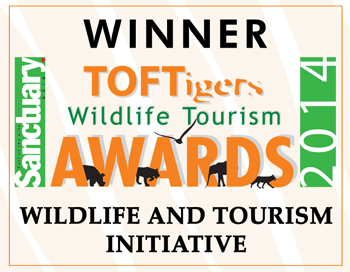The Pyramid of Wealth
The Pyramid of Wealth
In a recent interview, Kofi Annan stated that the greatest problem facing mankind today is the lack of fresh water around the globe. He named this problem “water poverty,” not only calling it the source of all other forms of poverty, but also predicting that the future wars of the world will be fought over access to this most essential and scarce natural resource. For, from fresh water stems life and the means by which all life is sustained.
Here in India we can already see these ‘wars’ taking place as state fights with state over the use of water in our nation’s rivers—case in point, the recent court cases between Tamil Nadu and Karnataka over the use of water from the Cauvery River. Another example: the recent problems between India and Pakistan over proposed dams on either side of the border—dams that will interfere with the natural course of two of the major rivers flowing within the two countries.
Mr. Annan also described the triangle that makes up the ‘Pyramid of Wealth:’
The bottom corners of this triangle are water wealth and ecological wealth, and are interconnected and dependent upon one another. You cannot have ecological wealth without water, and you cannot have fresh water without the ecological wealth of forests which are the watersheds, the water basins from which all fresh water flows forth.
At the top of this triangle or pyramid is economic wealth which is dependent on the base made by the other two. You can not have economic wealth without a wealth of fresh water and ecological/environmental abundance. No business or industry can be run without an adequate supply of fresh water. No healthcare facility or educational facility can be sustained. In addition, without water and the forests that are its source, whatever economic wealth there may be is eroded as money is diverted to deal with famines from droughts, plagues and epidemics from uncontrolled floods and waterborne diseases (malaria, dengue fever, encephalitis, etc.), and other related problems associated with deforestation and lack of fresh water.
SAI Sanctuary Trust (SST) uses a three-pronged approach to help strengthen and sustain this Pyramid of Wealth. First, through acquisition and protection of forest lands and the reclamation of degraded lands through afforestation projects, the source of all fresh water—the forests—are preserved and expanded. This also safeguards the habitat for various species of wildlife since the forest is their home.
Second, through anti-poaching measures and rescue, rehabilitation and release programs of wildlife, the health of the forests is insured. For, you cannot have a healthy forest without the wildlife that lives within it, protecting and expanding it through their natural living cycles. Animals are the link between the forest canopy above and the ground below. They are responsible not only for pollination—necessary for the propagation of all species of flora—but also for the spreading of seeds far and wide, eating the fruits and seeds of the plants and dropping them/eliminating them in their waste later on. This symbiotic relationship between flora and fauna is essential for the survival of both, and for the survival of humankind as well. Hence, both cornerstones of the Pyramid of Wealth have been protected and strengthened.
Third, SST helps to raise awareness of the importance of the forest through various means including: 1-writing articles for and giving interviews to the local, national and international media, 2-educational programs including talks, slide shows, and the establishment of Nature Clubs, 3-discussions with business groups, other service organizations and local residents to explain the connection between water and ecological wealth with economic wealth.
Through promotion of organic/sustainable agricultural practices, agriculturalists are made aware of the detrimental effects that the use of chemicals and intensive monoculture farming practices have on the environment in general. They are also introduced to another pyramid or triangle—‘The Three Legs of Agriculture’—which are: 1-fresh water, 2-soil fertility, and 3-biodiversity. All three of these ‘legs’ stem, once again, from the forests. When this information/knowledge is shared, forests are protected, farming practices are changed and crop yields increase, and the environment is cleaned up and preserved—all of which translates into an increase in economic wealth individually and collectively.

